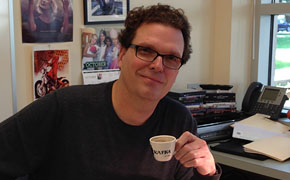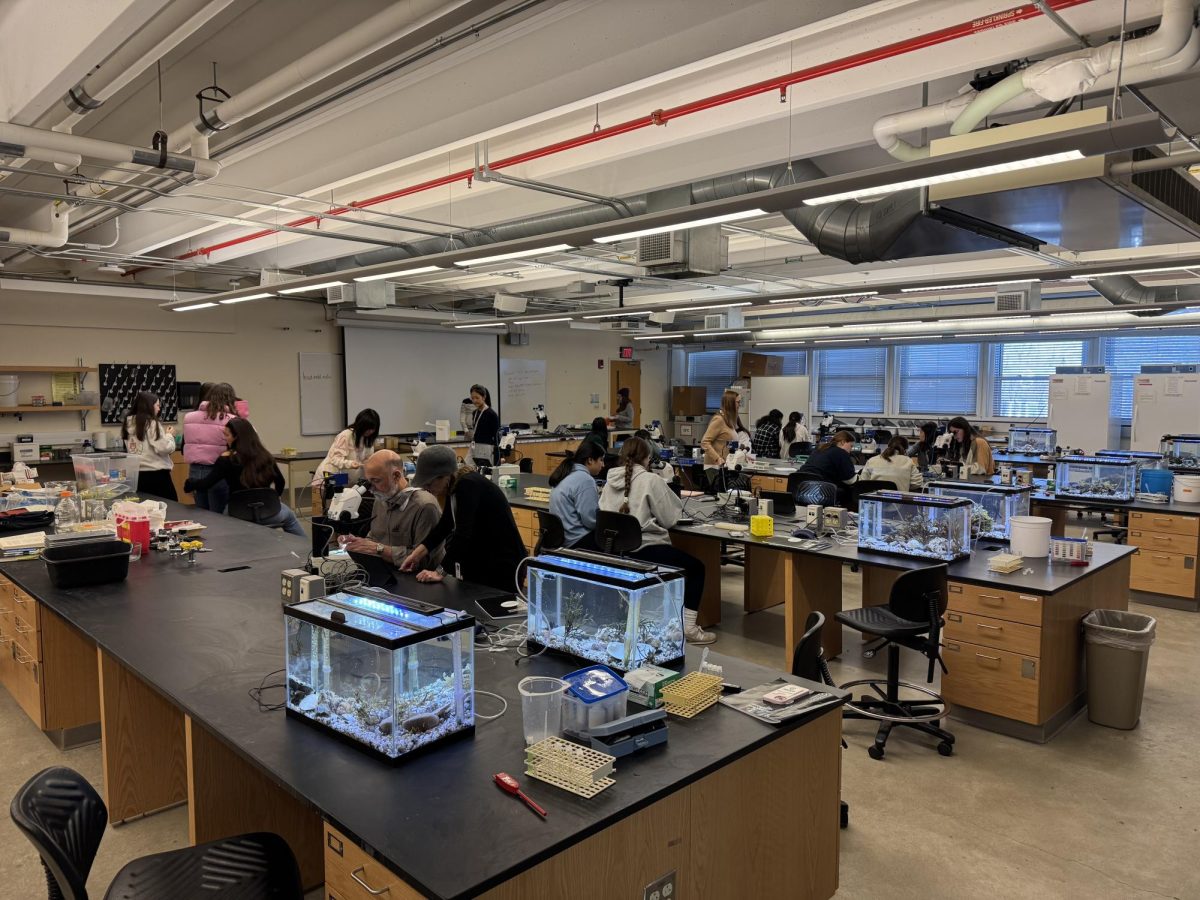Hockaday teachers work to earn their Ph.D.s.
At the end of the day, when he finishes teaching his classes at Hockaday, Upper School history teacher Lucio Benedetto grabs a quick bite to eat, reads his notes from the day before and heads off to his 7 p.m. class. This class, however, is not one he teaches. It is one of the many he has been taking to fulfill the 60 hours of coursework required to obtain a Ph.D. in Humanities.
The Ph.D. process itself varies depending on the field, school and the student’s previous education. But the one thing all Ph.D. programs have in common is the completion of the required coursework hours.
At the University of Texas at Dallas, the 60 hours required for a Ph.D. in humanities include independent studies. In this coursework, “you’re taking higher-level graduate work in whatever field it is that you’re in,” Benedetto said. “I’m doing humanity studies and literature, so most of my courses are in literature. At UTD, however, you are also required to take some courses outside of that as an interdisciplinary program.” Benedetto thus takes not only literature classes, but other courses in history and aesthetics as well.
After completing the requirement of a certain amount of coursework, the student takes an examination in which they must display advanced proficiency in reading a foreign language.
Then, they start researching for his or her dissertation paper, a formal, usually very long paper that defends a particular thesis on a certain subject with multiple arguments. For this, a student must go through a reading committee, which assigns the student a group of books to read based on his or her dissertation research.
The student then also must take an oral examination based upon the information from the readings assigned by the reading committee. “It’s essentially where you sit and they question you based on all of these things. I mean, you’re prepared as you can be,” Benedetto said.
To an average observer, the process seems demanding and difficult. But Benedetto doesn’t see it that way. “The process to me isn’t so bad, but being a teacher and getting a dissertation at the same time does sometimes feel a little overwhelming, like teaching here at Hockaday and then having a lot of reading or outside writing to do myself,” Benedetto said.
However, Benedetto thinks that his experiences with the Ph.D. process is beneficial for his students, too.
“One thing is that I’m regularly writing papers, turning in either one to two JRP-length kind of papers during a semester, 10 to 15 sometimes 20 pages long,” Benedetto said.
He feels that his regular practice of writing essays, similar to the papers Hockaday students write during the school year, can help him advise students when they go through similar experiences.
Junior Demre Inanoglu, a student in Benedetto’s AP US History class, agrees. Inanoglu couldn’t decide between two topics, but after discussing with Benedetto about which topic would be better suited for her, she finally narrowed her topic down to the evolution of blues into rock and roll in the 1950s.
“He helped me narrow down my topic and was really knowledgeable in [the evolution of blues] and had several great books on it,” Inanoglu said. “He is very knowledgeable about pretty much everything related to history, which really helps the students in writing their JRP.”
Benedetto feels the Ph.D. process has been a positive effect as a whole, not only for his own academic and personal growth but also as a way to better support his own students.
“It gives me some insight into what my students are going through; it keeps my writing fresh, so I feel like I can be a better guide to them. I can be a better guide to them with their research too, for their research projects,” Benedetto said. “I think it’ll be ultimately beneficial.”



